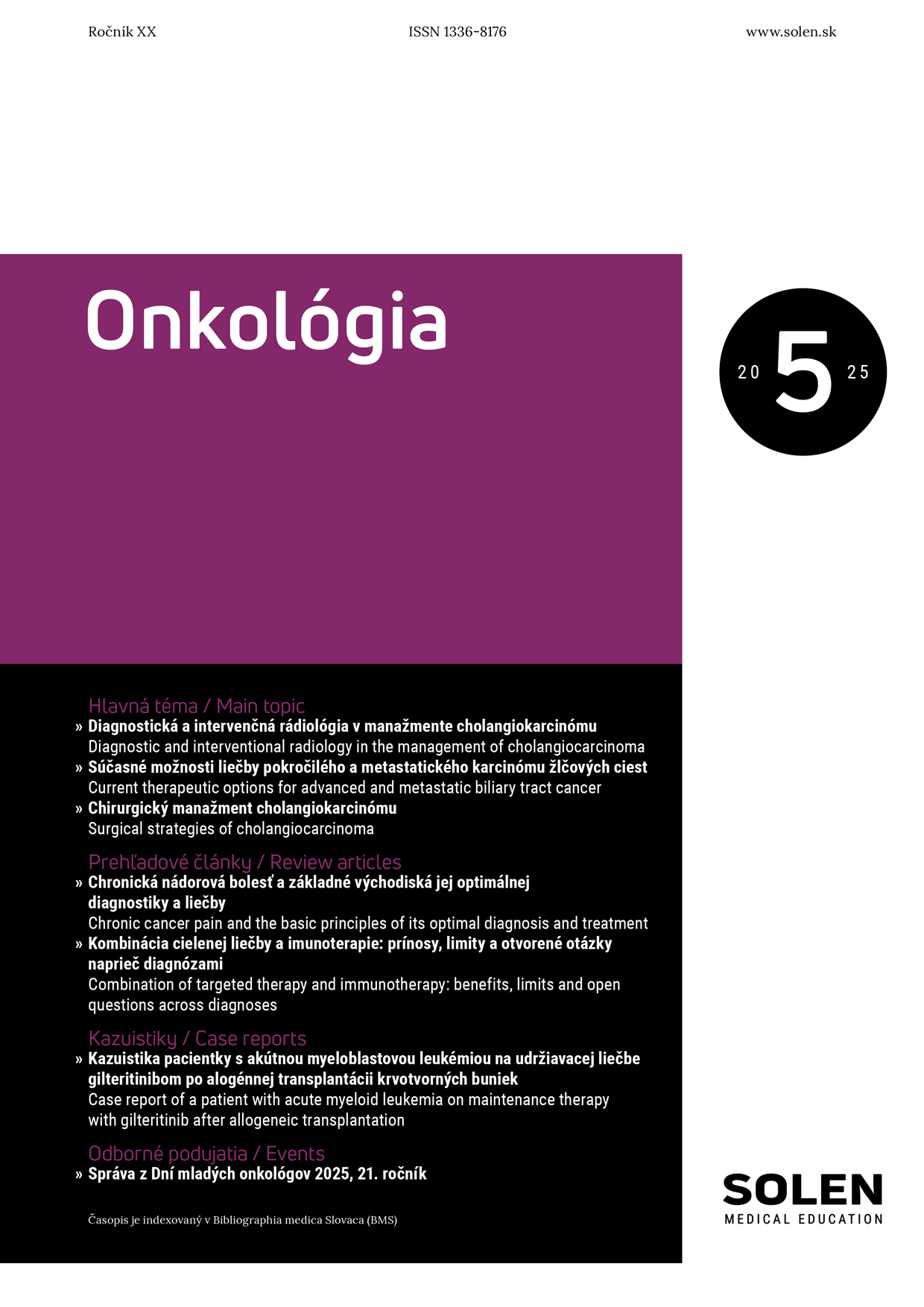Onkológia 3/2022
Management of chronic myeloid leukemia after failure of second generation tyrosine kinase inhibitors
Chronic myeloid leukemia (CML) has become from a fatal leukemia in the past decades, to a chronic disease with life expectancy close to that of the general population. However, there still exist a population of patients who are resistant to tyrosinkinase inhibitors (TKI). The resistance to TKI can cause the progression of CML to the blast crisis with very bad prognosis. The choice of TKI in ≥ 2nd line may depend on patient´s age and comorbidities, prior adverse events, possible drug interactions and what is very important also on the detection of mutations in BCR-ABL1 kinase domain. After the imatinib failure in first line we can use second generation TKIs (bosutinib, dasatinib, nilotinib). In case of second generation TKI failure there is an option to use ponatinib, a very effective third generation TKI that is approved also for patients with T315I mutation but is associated with high iatrogenic cardiovascular risk. There is a need for more efficacious third-line options for patients resistant or intolerant to TKIs, i.e. asciminib a new first-in-class BCR-ABL1 inhibitor Specifically Targeting the ABL Myristoyl Pocket (STAMP inhibitor) with different mechanism of action compared with currently available TKIs. Allogeneic stem cell transplantation remains an important option for patients with CML-CP with failure after ≥ 2 TKIs but it is associated with potential complications as a graft-vs-host disease.
Keywords: asciminib, chronic myeloid leukemia, mutations, toxicity, tyrosine kinase inhibitors

















